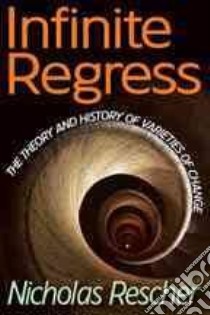Infinite Regress - 9781412810968
Un libro in lingua di Nicholas Rescher edito da Transaction Pub, 2010
- € 48.80
- Il prezzo è variabile in funzione del cambio della valuta d’origine
In 2005, journalists faced enormous challenges while covering hurricanes Katrina and Rita along America's Gulf Coast. They struggled to find ways to communicate, move from one place to another, and find reputable information. They witnessed complete chaos, observed human suffering, and were outraged with delayed or ineffective rescue mechanisms. Not only did journalists face these normal problems of crises---since many themselves were among the victims, they were forced to do their jobs under circumstances that seemed impossible.
The contributors to Covering Disaster study human and professional coping mechanisms and lessons that may be learned from media disaster coverage. During Katrina and Rita, journalists responded largely by redefining traditional ideals of fairness, balance, and objectivity and by adopting an emotionally driven and somewhat more subjective reporting style. In this way, they rediscovered and emphasized journalistic purposes and techniques that have long been the hallmarks of greatness. Their work during those months of destruction and pain was applauded by their readers and viewers because it was useful, critical of officials who were not doing their jobs, sought support for those who were suffering, and took a position of public leadership.
Now that the winds have died down, flood waters have receded, and rebuilding has begun, the brand of public-oriented journalism found in the midst of the storms must not be forgotten.
This volume is a reassessment of free will and, as such, seeks to answer the question: Do humans ever act under the guidance of the will? To determine if humans have free will, Rescher first examines what exactly free will is and how it should function, While the literature on the subject of free will is vast, a good deal still remains to be done to avert obscurity and confusion. Rescher leads the reader through a conceptual web of distinctions that, taken together, provide a satisfying contribution to philosophical thought on free will in general.
Thought experimentation has been a staple of philosophical methodology since classical antiquity, when Xenophanes of Colophon speculated that if horses had gods, they would be equine in form. Nicholas Rescher's What If? undertakes a systematic survey of the role and utility of thought experiments in philosophy. After surveying the historical issues, Rescher examines the principles involved, and explains the conditions under which thought experimentation can validly yield instructive results in philosophy. The reader gains understanding of the differences between scientific and philosophical experiments.
Epistemology is more than the theory of knowledge. Its range of concern includes not only knowledge proper but also rational belief, probability, plausibility, evidentiation, and not least, erotetics, the business of raising and resolving questions. With increasing sophistication, the ordinary as well as the extraordinary excites the intellect, so that questions gain an increasing prominence within epistemology. Inquiry Dynamics focuses on the phenomena and theory of rational inquiry, focusing on its concern for questions and their management.
Regression addresses what has come before; it is a matter of looking backwards---of retrospections. The motionless things of nature are generally forward-looking---their problem is that of the question: Where do we go from here? It is primarily with intelligent beings that we ask: How did we get to where we now find ourselves? Regression---and infinite regression in particular---is thus a concept that has gained a greater prominence in the human sciences than in the sciences of nature.
Argumentation to infinite regress has long been a favored instrument of philosophical dialectic. Philosophers have used it to disprove the positions they model to criticize. Infinite regresses, so they reason, are unrealizable: they cannot be completed so as to achieve some definitive result. And thereby anything that would engender an infinite regress is automatically made ineffective.
Infinite Regress examines the theory of regression and includes information on the topics of vicious regress, innocuous regress, circularity regress, and propositional regress. Also discussed is the history of regression stemming from ancient times, to medieval times, to early modern history. Some of the other chapters in this book focus on world class philosophers including Immanuel Kant, Georg Wilhelm Friedrich Hegel, and Bertrand Russell. The book will play a significant role in theoretical philosophy as well as in social philosophy and the philosophy of mind.
Informazioni bibliografiche
- Titolo del Libro in lingua: Infinite Regress
- Sottotitolo: The Theory and History of Varieties of Change
- Lingua: English
- Autore: Nicholas Rescher
- Editore: Transaction Pub
- Collana: (Hardcover)
- Data di Pubblicazione: 01 Gennaio '10
- Genere: PHILOSOPHY
- Pagine: 180
- ISBN-10: 1412810965
- EAN-13: 9781412810968


